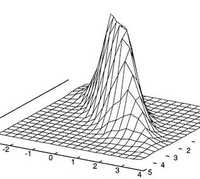Innovation activities, especially research and development, are publicly funded in many ways (tax incentives or directly through R&D grants, guarantees and liabilities). Knowledge of the impact of funding is essential for funding institutions and policy makers. In recent years, the availability of innovation data has increased. At the same time, the spectrum of statistical and econometric methods has expanded, especially methods that measure the causal effect of funding.
The aim of the discussion event is therefore to provide an overview of econometric methods for the causal estimation of funding effects in the field of research, technology and innovation policy evaluations. International experts explain different methods using concrete examples and discuss assumptions, resilience as well as advantages and disadvantages in practical use, from the perspective of evaluators and from the perspective of users of evaluation results. The aim is to present a variety of methods from relatively recent econometric developments, such as randomised controlled trials (RCT), propensity score matching, difference-in-differences approach, synthetic control function.
On the one hand, the evaluation community can take away from this a better understanding of the significance of different methods, as well as learn about the limits of resilience but also the advantages compared to methods that are not able to identify causal effects. This is particularly relevant for RTI policy-makers in order to be able to assess the robustness of evaluation results. On the other hand, the prerequisites for the use of such methods will be presented, e.g. with regard to funding design approaches (how must funding be designed in order to be causally evaluable), data access and the linkability of data.
The event was organised by fteval in cooperation with WIFO – Austrian Institute for Economic Research and KMU Forschung Austria – Austrian Institute for SME Research. The following international experts have been recruited for the event:
- Dirk Czarnitzki (ZEW – Leibniz Centre for European Economic Research)
- Hanna Hottenrott (Technical University of Munich)
- Jens Storm (Office for Data Analysis, Ministry of Higher Education and Science, Denmark)
- Theo J.A. Roelandt (DG Enterprise & Innovation, Dutch Ministry of Economic Affairs)
Informed by the presentations, a policy roundtable discussion was held with Birgit Tauber (FFG), Rupert Pichler (BMK) and Elisabeth Nindl (FWF) as discussants.
Recordings of the presentations:
Presentation slides:
Date: Friday, 3 September, 10.00-14.00
Venue: online







